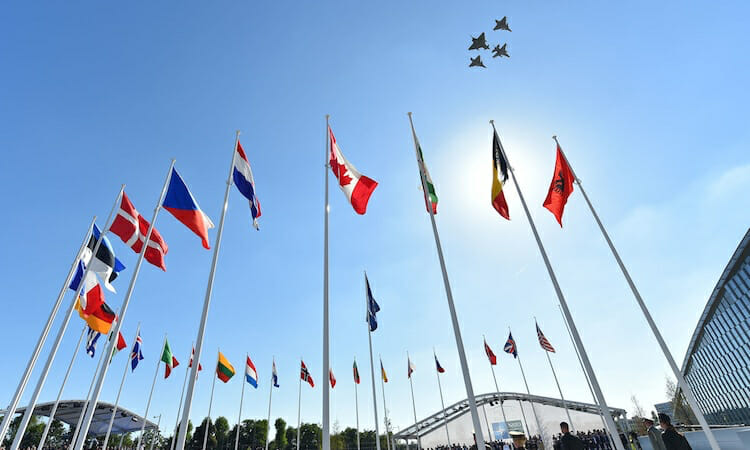
Articles
Editor’s Picks
NATO’s Defence Education Enhancement Programme (DEEP) Leverages eLearning
By Cait Etherington
September 22, 2017
NATO’s Defence Education Enhancement Program
The Defence Education Enhancement Program, widely known as DEEP, is a focused on reform. Simply put, it offers practical support to nations who wish to develop and reform their professional military education institutions. As the NATO explains, “The DEEP Programme fosters defense capacity building, cooperative capability development, and standardization, and promotes interoperability of processes and methodologies to enhance democratic institutions.” Among other key objectives, the program seeks to offer “demand-driven” curricula to meet the specific needs of member nations and to put Western-based military and security experts into contact with nations under transition. Currently, Afghanistan, Armenia, Azerbaijan, Georgia, Kazakhstan, Mauritania, Mongolia, the Republic of Moldova, Serbia, Tunisia, and Ukraine are all part of NATO’s DEEP initiative.
To support this project, NATO has partnered with the Partnership for Peace Consortium of Defense Academies and Security Studies Institutes. According to the Consortium, a key program objective includes, “supporting defense education institutions (war college, staff college, military academy, NCO) for faculty development (how to teach) and curriculum development (what to teach)” and “Tailoring materials to meet individual Partner defense education requirements.”
Since DEEP is on-demand, the actual content of the program is always changing to meet individual nation’s specific needs. A 2016 article posted on NATO’s website explains: “When a country requests a DEEP programme, the first step is a visit by a multinational DEEP assessment team to meet in-country with their interlocutors to scope out the potential programme. Based on the assessment visit, the DEEP team creates a proposed action plan, usually with a three-year duration. Once the partner approves the action plan and funding is identified, the DEEP academic lead assembles and allocates the appropriate expertise from a vast transatlantic network of experts that is managed jointly by NATO and the PfP Consortium’s Education Development Working Group.”
If the numbers are any indication, DEEP continues to have a huge impact. In 2013, DEEP held 85 events involving 162 allied experts and 245 partner country instructors. In 2016, DEEP held 252 events with 447 allied experts and 367 partner country instructors.
The Decision to Embrace Online Learning
 In June, when the DEEP program was launched Prof. Stanislaw Kunikowski, Rector of Cuiavian University in Poland, said, “Cuiavian University is proud that NATO has acknowledged our strong e-learning capacity and we are keen to expand our mutual cooperation from the DEEP Ukraine to other NATO partners.” Now, the National Defence University is now planning to develop its own eLearning courses. The courses will complement the current courses the university offers on-site and enable students to engage with a wider range of practical and case-scenario based instruction materials.
In June, when the DEEP program was launched Prof. Stanislaw Kunikowski, Rector of Cuiavian University in Poland, said, “Cuiavian University is proud that NATO has acknowledged our strong e-learning capacity and we are keen to expand our mutual cooperation from the DEEP Ukraine to other NATO partners.” Now, the National Defence University is now planning to develop its own eLearning courses. The courses will complement the current courses the university offers on-site and enable students to engage with a wider range of practical and case-scenario based instruction materials.
NATO’s DEEP Coordinator, Mariusz Solis, has already endorsed the Cuiavian University initiative, issuing the following statement to his colleagues last June: “Your university has proven to be a reliable provider of knowledge and expertise and the Defence Education Enhancement Programme will work with you for the benefits of NATO partners’ military education institutions that want to reform their educational system and introduce new teaching techniques.” There are also signs that moving forward, NATO will increasingly rely on eLearning. As stated on the organization’s own website earlier this week, eLearning is “becoming an essential part of professional military education and is also one of the fastest growing areas of NATO’s education and training capabilities in the area of technology.”









No Comments